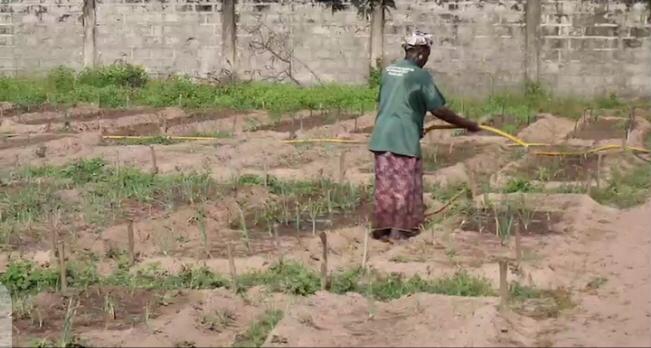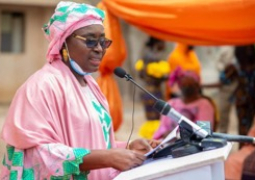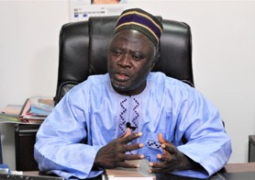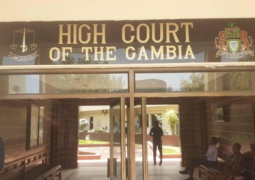
In an interview with some women gardeners in West Coast Region, Karafanding Badjie, president of the Jongong Bantang (kafo) committee in Foni Brefet said the pandemic crippled their businesses. She stated that prior tothe pandemic, they made over eight million dalasis a year but noted that when the pandemic hit, it went down to four million dalasis.
Every sector experienced challenges during the height of the pandemic and women in West Coast Region were no exception. She appealed for storage facilities where they will be able to keep and supply their customers without the products getting spoiled.
“We want to supply restaurants and hotels so that those that import outside the country will buy from us,” she said.
She highlighted that their challenges also include transportation with them having to walk 7km to get to the highway. Madam Badjie also said that adequate water supply is another challenge, saying without water there is no need for a garden. She therefore appealed to government to help them with boreholes in their gardens because some of them walk kilometres to fetch water.
Suntou Sanyang, president of Nyodemah Kafo, Ndemban Tender, in Foni, West Coast Region said since the advent of the coronavirus, all that they gathered in their garden was spent on food and their children’s school fees, among others.
She added that access to adequate water supply and the distance from their gardens traumatise them. “We want water at our gardens!” she said.
Another challenge she added was their gardens do not have a fence, therefore giving animals access to eat and destroy their cash crops.
Fatou Mendy, a member of Ndemban Japhium garden in Foni, WCR said that after harvesting their cash crops and selling them, each gardener used to get more than twenty thousand dalasis (D20, 000). However, she said during the pandemic women received not more than ten thousand dalasis (D10, 000).
Hon. Lamin J. Sanneh, National Assembly Member for Brikama South and a member of the select committee on agriculture and rural development said Covid-19 struck the whole world and the only way out should have been agriculture.
He said in the 2020 budget compared to 2021, nine hundred and sixteen million has been cut from agriculture, adding that on the budget line, agriculture represents 3% of the GDP which is not promising. “These are areas we need to invest in and improve our economy to make sure youth gets employment and people have food,” he noted.
He said the government needs to concentrate, support and patronise gardeners at all times since the vegetables they produce are perishable commodities. “We lack processing and storage facilities in the country, ”he went on, saying that, provision of fertilisers is also another challenge.
“The Gambia government is not serious when it comes to the agricultural subsector,” he said, adding that when Covid-19 started a lot of funds came from outside but the greater part was for health with the agricultural sector being completely left out. “The amount we received and its impact on people was not very satisfactory,” he added.
Hon. Sanneh further said that coronavirus is deadly but hunger and starvation can also cause death. He noted that government must give attention to agriculture.
The overall agricultural subsector should be relooked at but government commitment is questionable,” he further said.
The Gambia horticulture has always been an important direct source of food and income for many people especially the food insecure and vulnerable. The sub-sector, according to the Food and Agricultural Organisation research, employs over 65% of the agricultural labour force and accounts for about 24% of agriculture GDP and 4.2% of the overall national GDP.
The research further stated that an estimated 23% of The Gambia’s total arable land of 117,329 hectares is suitable for horticulture production, but less than 3% (3,519.9 hectares) is currently cultivated due to a number of challenges.
These include lack of good perimeter garden fencing, inadequate water supply for all year round production, inadequate research and extension systems, lack of innovation, limited access to finance, limited access to high-end market (linkages) and inadequate support from the government.
The first case of Covid-19 was reported on December 31, 2020 and the source of the outbreak linked to a wet market in Wuhan (Hubei province, China).
The Gambia’s Ministry of Health confirmed the country’s first case of coronavirus on Tuesday March 17, 2020.




